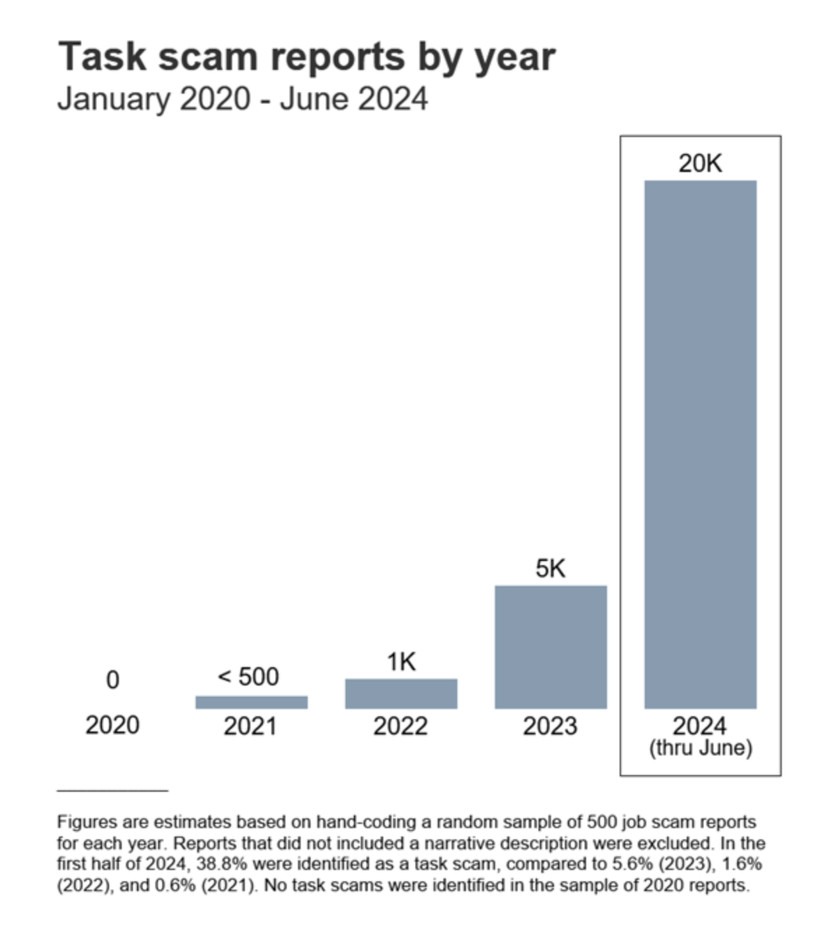The Federal Trade Commission (FTC) is cautioning Americans about a rising trend in “game-like online job scams,” which lure people into completing tasks with promises of steady income, only to defraud them. These scams often result in victims losing money, typically through cryptocurrency payments. During the first half of 2024, these so-called “task scams” have already swindled over $220 million, representing nearly 40% of all reported scams this year.
The prevalence of task scams has skyrocketed, with 20,000 cases reported in the first six months of 2024 alone. This marks a significant increase compared to just 5,000 reported cases over the three years from 2020 to 2023. The growing scale of these scams underscores their effectiveness in deceiving victims.
Typically, the scams begin with unsolicited messages sent via WhatsApp or text, targeting potential victims with offers to perform tasks such as “app optimization” or “product boosting.” Initially, scammers may pay small amounts of money to build trust and appear legitimate. However, once the victim is hooked, they are persuaded to invest their own money into tasks with promises of higher payouts. Ultimately, the scammers disappear with the victim’s funds, leaving them with nothing.

To help the public avoid falling victim to these schemes, the FTC has shared three essential tips:
- Ignore Unexpected Job Offers via Text or WhatsApp: Be wary of generic or unsolicited messages offering jobs. Legitimate employers do not recruit through random text messages or apps like WhatsApp. If you receive such messages, it’s best to disregard them entirely.
- Never Pay to Get Paid: A key red flag is being asked to pay money in order to receive earnings or a job opportunity. Authentic employers or businesses will never request payment from you to access what you’ve supposedly earned. Any such demand is a clear sign of a scam.
- Do Not Trust Offers to Pay for Rating or “Liking” Online Content: Claims that you can earn money by liking or rating content online are fraudulent. Such practices are illegal, and reputable companies will not engage in them.
The FTC’s warnings come at a crucial time as these scams continue to evolve, preying on individuals who may be seeking flexible or remote work opportunities. By educating the public and providing practical advice, the agency aims to reduce the financial harm caused by these fraudulent schemes.
Staying vigilant, verifying job offers through trusted sources, and following the FTC’s guidelines can help individuals avoid becoming victims of task scams. As these schemes grow more sophisticated, understanding the warning signs is essential to protecting yourself and your finances.
